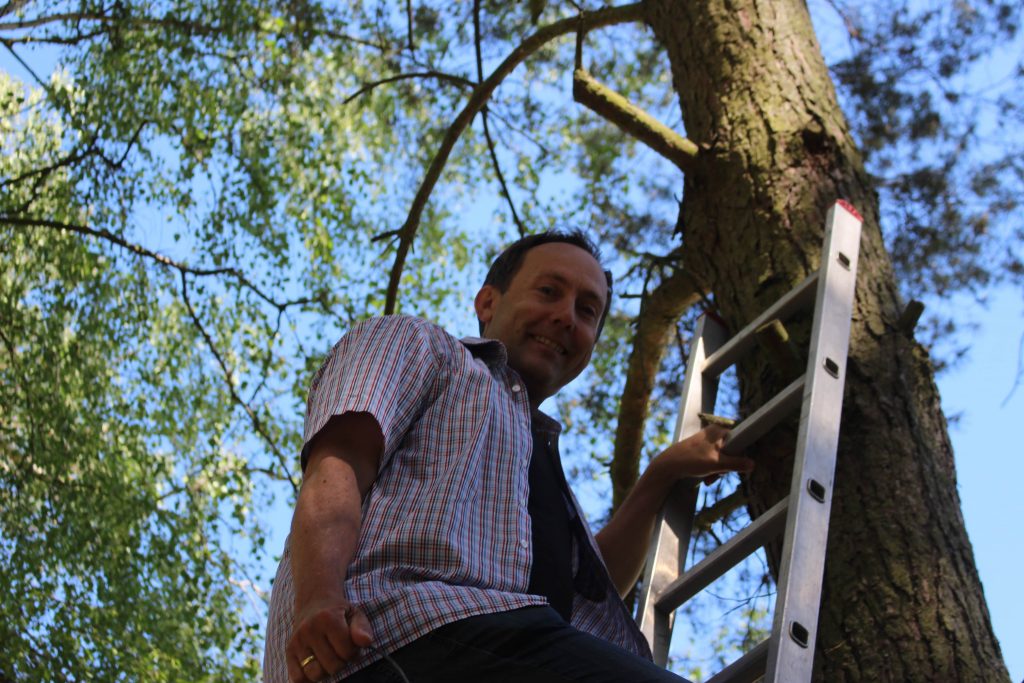
The 6th International Berlin Bat Meeting is due to be held online from 22nd–24th March 2021 and will consist of a series of live lectures delivered via video link. To make it possible for people to attend from around the world, the lectures will also be available to watch on demand. At NHBS, we’ve always loved being involved with the Berlin Bat Meeting and hope that soon we can attend again in person!
In the build up to this exciting event, organiser Dr. Christian Voigt kindly took the time to answer some questions about this year’s meeting. Dr Voigt is Head of the Department of Evolutionary Ecology at Leibniz Institute for Zoo and Wildlife Research, Lecturer at the Freie Universität Berlin and Member of the Berlin-Brandenburg Centre for Stable Isotope Ecology.

The theme of this year’s International Berlin Bat Meeting is ‘The Human Perspective on Bats’. Can you tell us why you decided to choose this particular theme?
We decided on this topic because we became aware of the necessity to address bat conservation from a more holistic approach. Conservationists often have the saying ‘wildlife management is the management of humans’ and this is very much true. We need to better understand the emotions and attitudes of humans towards wildlife in general and bats in particular, in order to protect wildlife and bats respectively. Ultimately, this will make conservation more efficient. The Covid-19 pandemic told us that we were right because many aspects of bat conservation have turned more difficult when some people changed their attitude towards bats. It is important to remember that bat conservation does not only mean dealing with the protection of bat populations but also with their ecosystem function. In many cases, bats are very helpful for humans, e.g. by consuming large numbers of pest insects or because they pollinate flowers or disperse seeds. Becoming aware of these ecosystem services might change people’s minds about why they should care for bats. Lastly, zoonotic diseases such as Covid-19 emerge because the way we treat wildlife is wrong. Poaching, wet markets, our whole interaction with wildlife has to be reconsidered and we will be talking about this during the International Berlin Bat Meeting. The topic of the upcoming IBBM `’The human perspective on bats’ is more relevant and timely than ever.
What do you think are the key conservation challenges currently faced by bats?
The major challenge is now to re-establish a good reputation for bats. Bats are key players in ecosystems, they are important indicator species, and many species are rare or even threatened. We need to care for them.
How do you hope that this meeting will contribute to the work required to address these challenges?
Our hope is that we come up with ideas about how to approach bat conservation and human-bat interactions from a different angle. This conference will bring together people from various geographic backgrounds and from a variety of disciplines. It is this exchange of ideas and perspective that make the IBBM quite unique among bat conferences.
Meetings such as these provide an unrivalled chance for attendees to share ideas and network. Do you know of any key projects or collaborations that have arisen from previous International Berlin Bat Meetings?
The networking that happens during these meetings is huge. The very first IBBM on bat migration brought this topic to the attention of many people and lots of papers have been published since then. Specifically, our meeting on bat diseases, right when white-nose syndrome hit North American bats, stimulated a lot of excellent research on both continents. I remember that we sat together during the IBBM and discussed what should be done and what to expect.
Organising an online meeting must be very different in comparison to organising an ‘in person’ event. How have you found the process? And have you noticed that there are benefits to this format, as well as challenges?
Organizing an online meeting is overall not difficult, it was the postponing of the conference, not knowing when to reschedule it and not knowing how people would respond to an online instead of a presence conference that caused us sleepless nights. Now that we have already organized a few online events, the task seems doable. Overall, the benefits are that people from many more places on our globe can participate in this event without having to pay the travel costs. The challenge for these kinds of conferences is to maintain a format in which people feel encouraged to discuss and to interact. This can be better achieved when you meet in person, e.g. during coffee breaks. It is my hope that we have a very lively discussion and a very stimulating event.
For more information and to register for the 6th International Berlin Bat Meeting, visit the Leibniz Institute for Zoo and Wildlife Research website.






